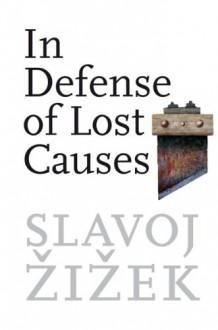In Defense of Lost Causes
by:
Slavoj Žižek (author)
Acclaimed, adrenalin-fueled manifesto for universal values by 'the most dangerous philosopher in the West.'Is global emancipation a lost cause? Are universal values outdated relics of an earlier age? In fear of the horrors of totalitarianism should we submit ourselves to a miserable third way of...
show more
Acclaimed, adrenalin-fueled manifesto for universal values by 'the most dangerous philosopher in the West.'Is global emancipation a lost cause? Are universal values outdated relics of an earlier age? In fear of the horrors of totalitarianism should we submit ourselves to a miserable third way of economic liberalism and government-as-administration? In this major new work, philosophical sharpshooter Slavoj Zizek takes on the reigning ideology with a plea that we should re-appropriate several 'lost causes,' and look for the kernel of truth in the 'totalitarian' politics of the past. Examining Heidegger’s seduction by fascism and Foucault’s flirtation with the Iranian Revolution, he suggests that these were the 'right steps in the wrong direction.' He argues that while the revolutionary terror of Robespierre, Mao and the Bolsheviks ended in historic failure and monstrosity, this is not the whole story. There is, in fact, a redemptive moment that gets lost in the outright liberal-democratic rejection of revolutionary authoritarianism and the valorization of soft, consensual, decentralized politics. Zizek claims that, particularly in light of the forthcoming ecological crisis, we should reinvent revolutionary terror and the dictatorship of the proletariat in the struggle for universal emancipation. We need to courageously accept the return to this Cause — even if we court the risk of a catastrophic disaster. In the words of Samuel Beckett: 'Try again. Fail again. Fail better.'
show less
Format: hardcover
ISBN:
9781844671083 (1844671089)
Publish date: April 17th 2008
Publisher: Verso
Pages no: 504
Edition language: English

I mark this as read in the sense that I read the first few chapters and then skimmed most of the rest and have no intention of going back to it. There was some thought provoking material, but on the whole it just made me realize that I don't care enough about "continental philosophy" to try to make...

